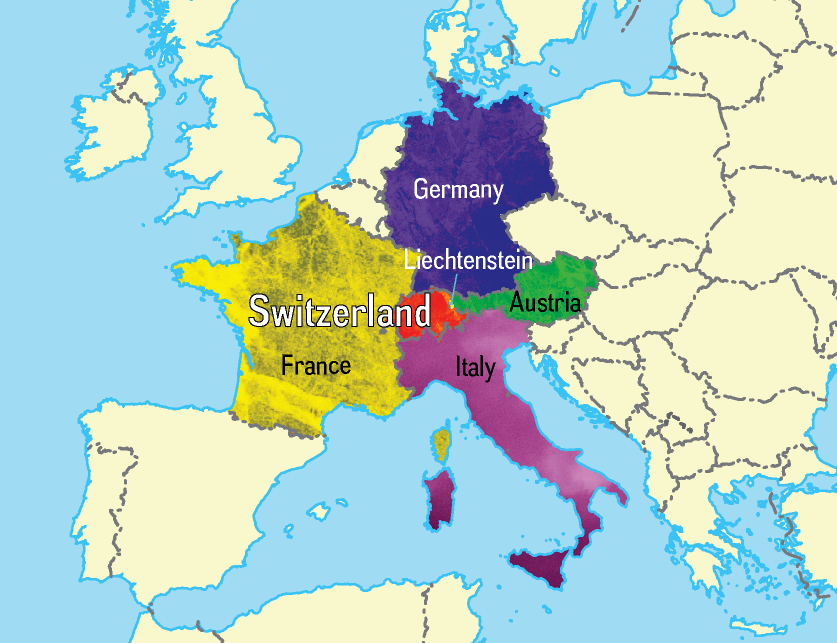International Relations
Switzerland’s Policy of Neutrality
- 01 Mar 2021
- 7 min read
Why in News
Recently, Switzerland’s Ambassador said that its traditional foreign Policy of Neutrality (Swiss Neutrality) has become attractive again because of the changing political reality in the world.
Key Points
- Policy of Neutrality:
- It is a foreign policy position wherein a state intends to remain neutral in future wars. A sovereign state that reserves the right to become belligerent if attacked by a party to the war is in a condition of armed neutrality.
- A permanently neutral power is a sovereign state which is bound by international treaty, or by its own declaration, to be neutral towards the belligerents of all future wars. An example of a permanently neutral power is Switzerland. Other being Ireland, Austria, etc.
- The concept of neutrality in war is narrowly defined and puts specific constraints on the neutral party in return for the internationally recognized right to remain neutral.
- International Day of Neutrality is a United Nations recognized day held on 12th December each year to raise public awareness of the value of neutrality in international relations.
- National policies of neutrality are aimed at promoting the use of preventive diplomacy, which is a core function of the United Nations.
- The term "Preventive diplomacy" refers to diplomatic action taken to prevent disputes from escalating into conflicts and to limit the spread of conflicts when they occur.
- Swiss Neutrality and its Evolution:
- Switzerland is renowned for its neutrality, but this should not be confused with pacifism. The country maintains an army, including obligatory conscription for men, and did so throughout both World Wars.
- The last time Switzerland (Swiss) fought a military battle was 500 years ago, against the French (the Swiss lost).
- In 1783, Switzerland was acknowledged as a neutral state in the Treaty of Paris.
- The Treaty of Paris was signed in Paris by Great Britain and the United States of America and Canada on 3rd September, 1783, and it officially ended the American Revolutionary War.
- Switzerland maintained its impartial stance through World War I (1914-18), when it mobilized its army and accepted refugees but also refused to take sides militarily.
- In 1920, meanwhile, the newly formed League of Nations officially recognized Swiss neutrality and established its headquarters in Geneva.
- A more significant challenge to Swiss neutrality came during World War II, when the country found itself encircled by the Axis powers. However even then Switzerland maintained its independence by promising retaliation in the event of an invasion.
- Since World War II, Switzerland has taken a more active role in international affairs by aiding humanitarian initiatives, but it remains fiercely neutral with regard to military affairs. It has never joined the North Atlantic Treaty Organization (NATO) or the European Union, and only joined the United Nations in 2002.
- In the 21st century, Switzerland is again becoming a destination for dialogue on difficult issues.
- Discussions on Syria, Libya and Yemen were held in Geneva.
- Significance for India:
- India’s policy of Non-alignment and Switzerland’s traditional policy of neutrality have led to a close understanding between the two countries.
- In 1948, a Treaty of Friendship was concluded between both the countries. Both believe in the spirit of democracy and pluralism.
Non-Aligned Movement
- About:
- It is a forum of 120 developing world states that are not formally aligned with or against any major power bloc.
- Origin:
- The group was started in Belgrade, Yugoslavia in 1961.
- It was created by Yugoslavia’s President, Josip Broz Tito, India’s first PM, Jawaharlal Nehru, Egypt’s second President Gamal Abdel Nasser, Ghana’s first president Kwame Nkrumah, and Indonesia’s first President, Sukarno.
- The most important antecedent to the formation of the Non-Aligned Movement was the Bandung Conference of 1955.
- Objectives:
- It has sought to "create an independent path in world politics that would not result in member States becoming pawns in the struggles between the major powers."
- It identifies the right of independent judgment, the struggle against imperialism and neo-colonialism, and the use of moderation in relations with all big powers as the three basic elements that have influenced its approach.
- At present, an additional goal is facilitating a restructuring of the international economic order.
- Principles:
- Respect for fundamental human rights and of the objectives and principles of the Charter of the United Nations.
- Respect for the sovereignty and territorial integrity of all countries.
- Recognition of equality among all races and of equality among all nations, both large and small.
- Non-interference or non-intervention into the internal affairs of another country.
- Respect the right of every nation to defend itself, either individually or collectively, in conformity with the Charter of the United Nations.
- Non-use of collective defence pacts to benefit the specific interests of any of the great powers.
- Refraining from acts or threats of aggression and use of force against the territorial integrity or political independence of any nation.
- Settlement of all international disputes by peaceful means.
- Promotion of mutual interest and cooperation.
- Respect for justice and international obligations.





